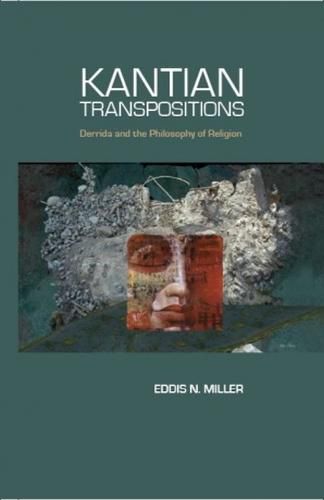Readings Newsletter
Become a Readings Member to make your shopping experience even easier.
Sign in or sign up for free!
You’re not far away from qualifying for FREE standard shipping within Australia
You’ve qualified for FREE standard shipping within Australia
The cart is loading…






Kantian Transpositions presents an important new reading of Jacques Derrida’s writings on religion and ethics. Eddis Miller argues that Derrida’s late texts on religion constitute an interrogation of the meaning and possibility of a philosophy of religion. It is the first book to fully engage Derrida’s claim, in Faith and Knowledge: The Two Sources of ‘Religion’ at the Limits of Reason Alone to be transposing the Kantian gesture of thinking religion within the limits of reason alone.
Miller outlines the terms of this transposition and reads Derrida’s work as an attempt to enact such a transposition. Along the way, he stakes out new ground in the debate over deconstruction and ethics, showing-against recent interpretations of Derrida’s work-that there is an ethical moment in Derrida’s writings that cannot be understood properly without accounting for the decisive role played by Kant’s ethics. The result is the most sustained demonstration yet offered of Kant’s indispensible contribution to Derrida’s thought.
$9.00 standard shipping within Australia
FREE standard shipping within Australia for orders over $100.00
Express & International shipping calculated at checkout
Kantian Transpositions presents an important new reading of Jacques Derrida’s writings on religion and ethics. Eddis Miller argues that Derrida’s late texts on religion constitute an interrogation of the meaning and possibility of a philosophy of religion. It is the first book to fully engage Derrida’s claim, in Faith and Knowledge: The Two Sources of ‘Religion’ at the Limits of Reason Alone to be transposing the Kantian gesture of thinking religion within the limits of reason alone.
Miller outlines the terms of this transposition and reads Derrida’s work as an attempt to enact such a transposition. Along the way, he stakes out new ground in the debate over deconstruction and ethics, showing-against recent interpretations of Derrida’s work-that there is an ethical moment in Derrida’s writings that cannot be understood properly without accounting for the decisive role played by Kant’s ethics. The result is the most sustained demonstration yet offered of Kant’s indispensible contribution to Derrida’s thought.